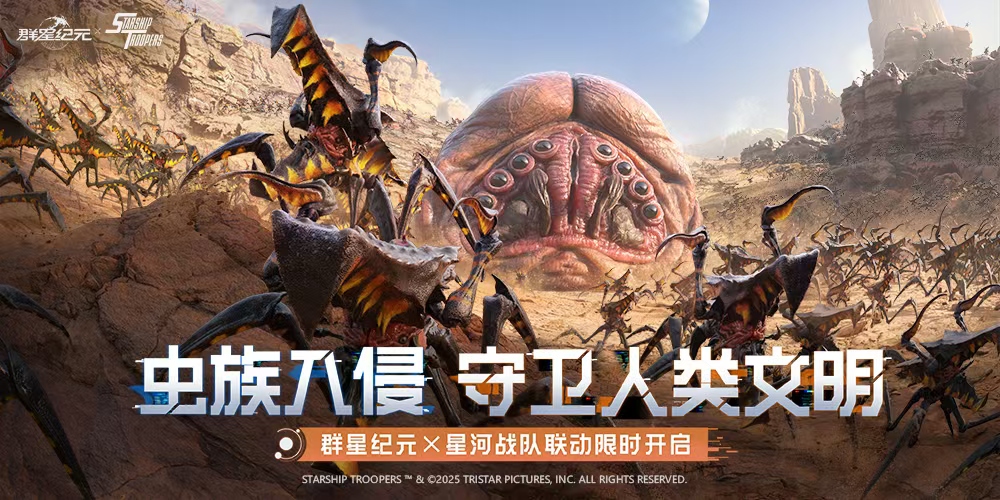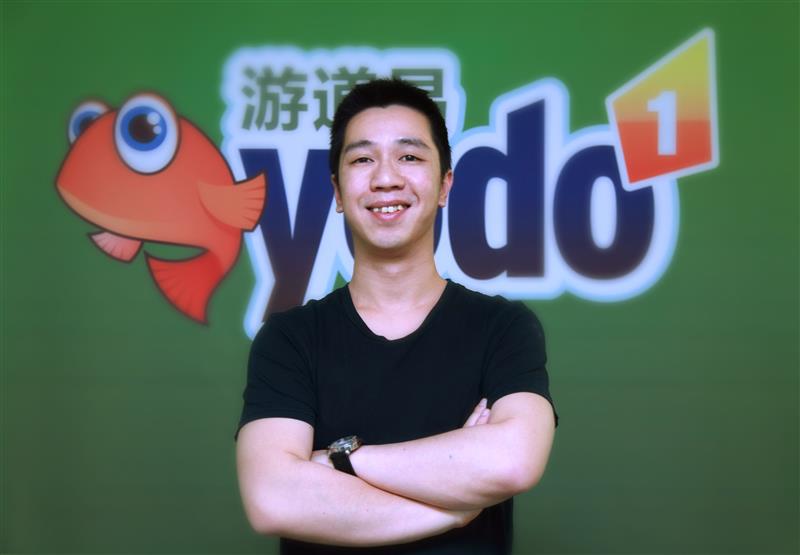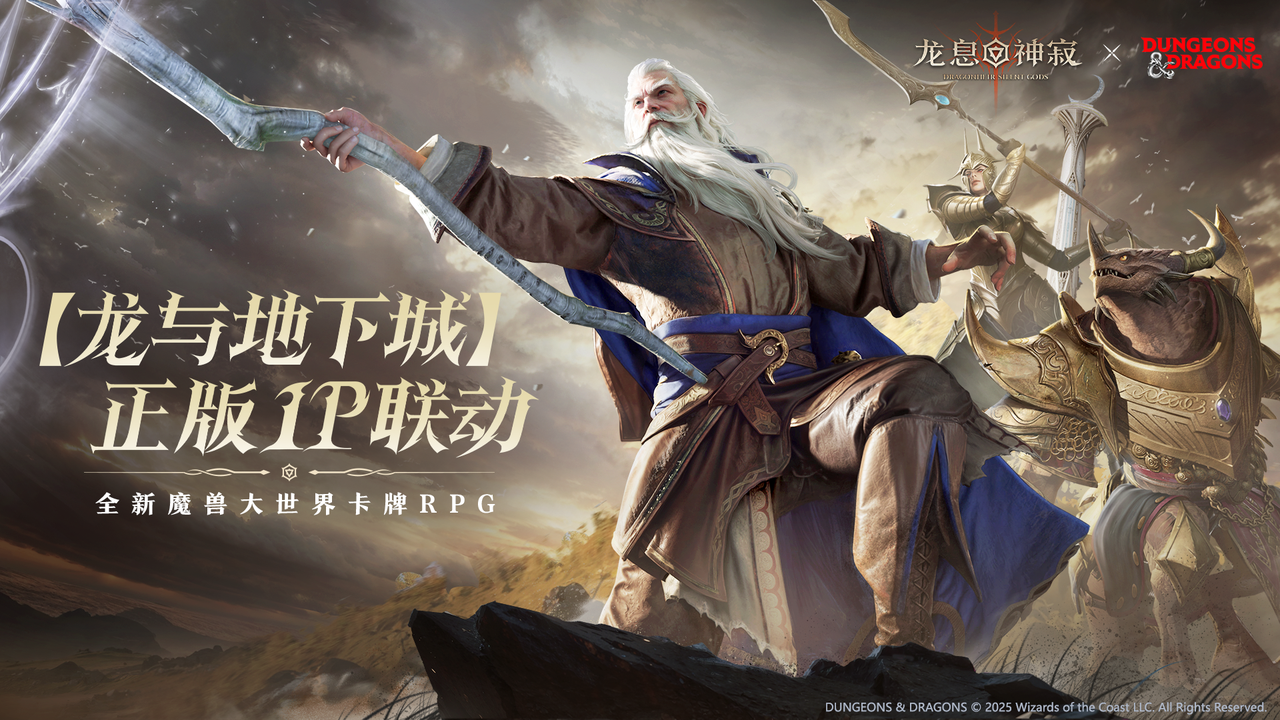From an ISBN to a Successful Launch: How Tap Titans 2 Got Published in China
For many game developers and studios, one particular opportunity looms large—China, the world’s largest gaming market, which is expected to generate US$94.4 billion in revenue in 2024. Yet for non-Chinese developers looking to bring their game into this colossal market, it has proven a particular challenge. Navigating the complex regulatory landscape, which includes securing the elusive ISBN license, is just one among a number of key hurdles that include game localization, marketing, and more.
With over a decade of experience in the mobile game industry, Yodo1 is proud to work with top games across the globe on publishing, marketing, monetization, and IP licensing. We have become the go-to choice for those looking to publish their games in China, and our recent launch of Tap Titans 2 serves as a great example.
Read on as we cover the process we followed to launch Tap Titans 2 in China, information that can serve as a useful roadmap for those looking to understand the process and potentially take that step themselves. Let’s get into it.
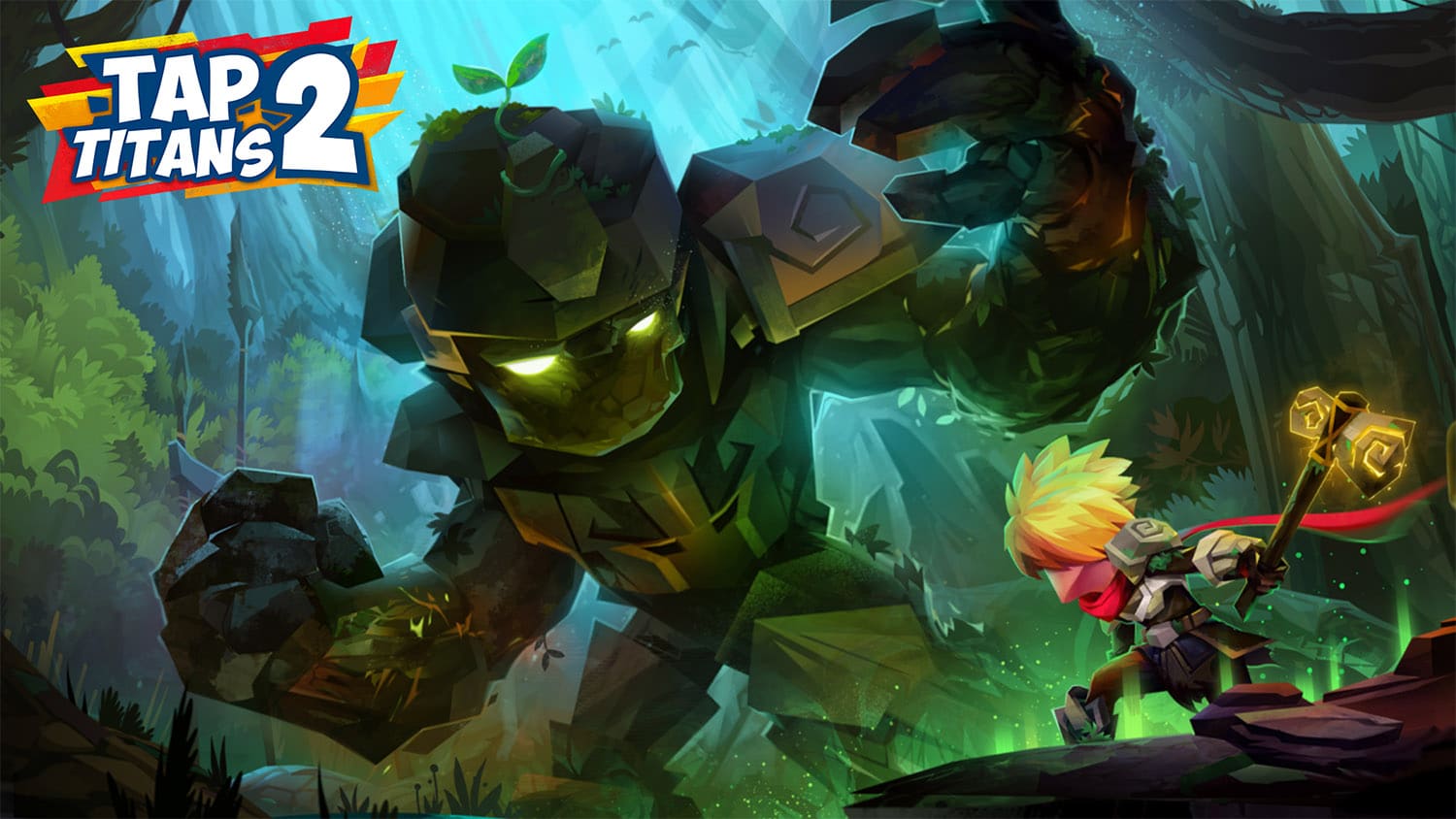
Approaching China
The original Tap Titans is the stuff of legends—launched in 2014, it became one of 2015’s best action adventure game RPGs and was featured by the Google Play Store and App Store over 500 times, a mind-boggling statistic. In late 2016, the adventure continued with the launch of Tap Titans 2, inviting players back to rally a team of warriors and save the world from the rampaging titans–this time across 150,000 levels! Like its predecessor, Tap Titans 2 has also amassed over 10 million downloads on the Google Play Store alone, cementing its status as a hit franchise.
The goal was always to launch in China, too, and the first step was securing a Chinese ISBN. As industry insiders know, in 2018 the country implemented a broad freeze on new game licenses, with only a very limited number issued since. That trend started to change last year, with multiple batches of ISBNs being released.
This was a positive sign, but things are still far from business as usual, with the huge game studios often receiving many of these licenses, while the rest have to struggle to even begin to understand the process.
Seeing the time-consuming, complicated process ahead and eager to publish in China as soon as possible, in 2023, Game Hive decided to partner with Yodo1 to make that happen.
With a stellar lineup of popular hits in China—Rodeo Stampede, Crossy Road, Ski Safari, and Transformers: Earth Wars, to name just a few—Yodo1 has experience in what it takes to bring a hit mobile game to the Chinese market, and we were happy to put this expertise to work for Tap Titans 2.
ISBN and ICP—You Need Both
Due to policy reasons in China, an offline version of Tap Titans 2 had to be created first. Only after passing the review and releasing that offline version was the green light finally received to push the new update with the online version. This was not wasted time—knowing the process, Yodo1’s team worked with Game Hive to continue to improve and develop the game in the meantime so that by the time permissions were secured, it was the best it could be.
As always, throughout the ISBN application process, we work closely with developers so that we can respond promptly to implement the modifications and adjustments that are needed, streamlining and saving time as much as possible.
To give you an idea, here is a simplified—yes, simplified—flow chart of the process:
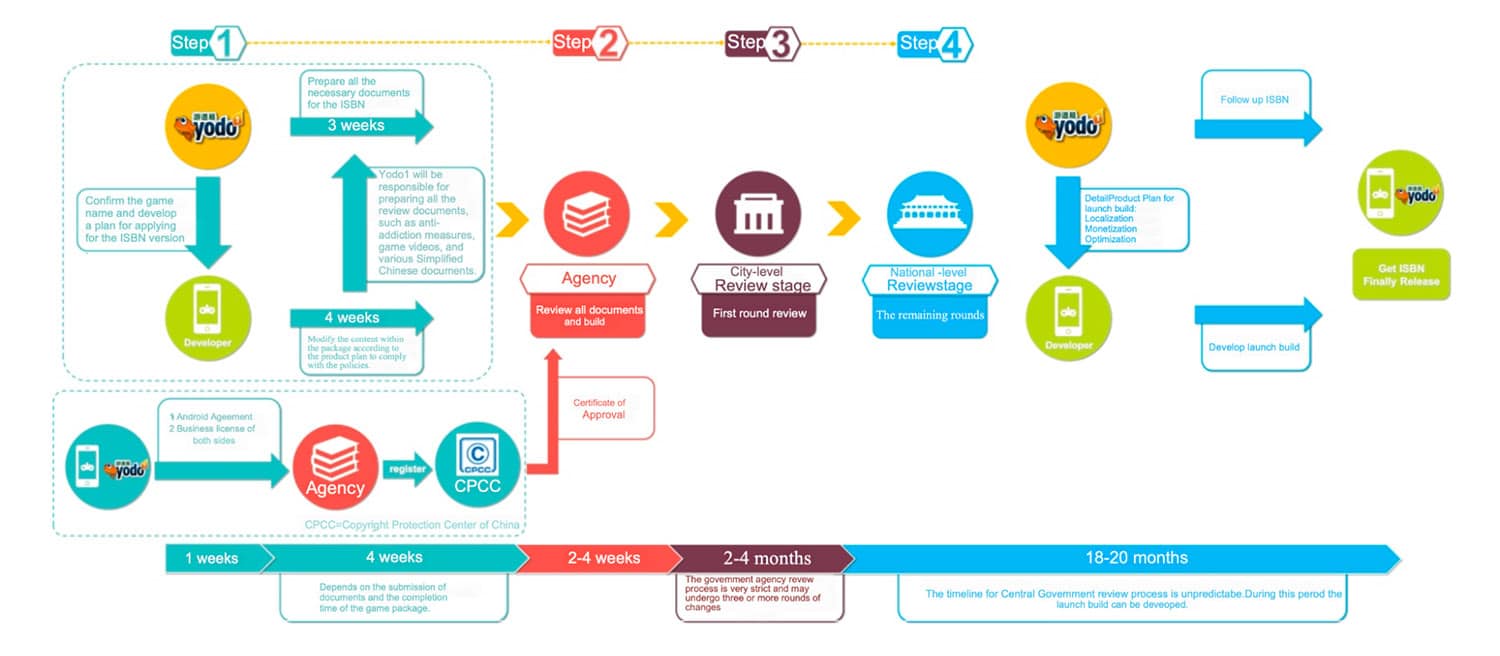
In November 2023, an additional requirement was introduced: an ICP (Internet Content Provider) registration, issued by China’s Ministry of Industry and Information Technology (MIIT).
What’s the difference between an ICP and an ISBN? Well, you can think of the ICP as your driver’s license, giving you permission to drive on the roads or operate in the gaming sphere in any way, while the ISBN is like your vehicle’s license plate or VIN—the unique identifier for your game.
Currently, we’ve been able to streamline the application process for the ICP to a one-month time frame—note that both iOS and Android platforms require an ICP.
And the logistics continue: for a game to be released on the Android platform in China, game packages need to be created that comply with each store/channel’s requirements. This means that if you want to launch your game on 50 Android channels/platforms, you will need to create 50 different APK game packages with specific rules (SDKs)—yet another area where having an experienced partner makes all the difference.
Having Yodo1’s experience on their side in navigating these time-consuming and oft-stormy waters of paperwork and submissions to secure both the ISBN and ICP meant that Game Hive could delegate all that to us, leaving them free to do what they’re great at—making cool games.
From Kickoff to Launch in Just Two Months
After the initial agreement kickoff and documentation, a publishing plan was created to cover marketing, localization, and distribution strategies in depth, with a dedicated team from Yodo1 including Liu Jing, Nina, Shawn Liao, Sandy Smith, and Qianzi.
The team decided to focus on iOS preorders, which built hype around the approaching launch, leading to a rise in the app store rankings and attracting high-value players.
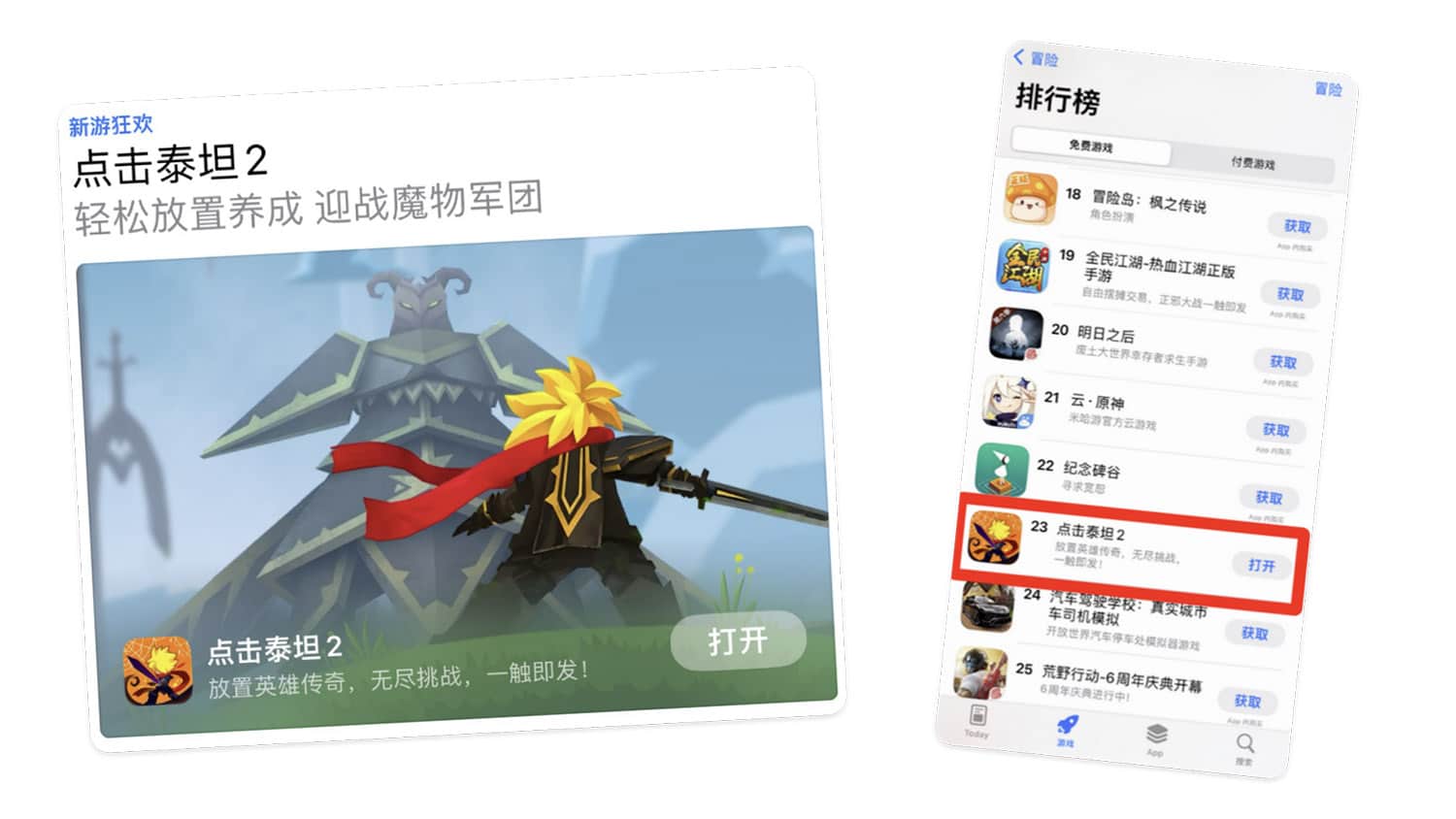
Programs were launched with Bilibili (the equivalent of YouTube in China) and Douyin (Chinese TikTok) creators, and working with popular influencers on these platforms proved a solid way to reach new users and increase download numbers. Fans were encouraged to create their own viral videos and other user-generated content (UGC), and a specially created Douyin filter also raised visibility and engagement with a fresh audience.
Regular posts across social media platforms and fan group interaction also contributed to Tap Titan 2’s strong social media presence. Yodo1’s creative design team worked around the clock it helps having staff all over the world! to produce top-quality creatives, including a dozen videos and trailers.
Strategic Localization — More Than Just Marketing
Pre-launch development continued with a solid localization strategy to ensure full compliance in all required areas, and, most importantly, to arrive at a custom gaming experience that Chinese players would connect with and love.
Whenever strategic localization comes up, the focus often turns on what you can add to a game to make it more attractive and relatable to a particular audience. This is a key game growth strategy that we often turn to—creating special events and launches around local holidays is just one example of how to do this successfully.
Strategic localization, however, is more than that. For example, games in China are not permitted to feature realistic blood or skeletons, and games that do contain these elements will need to be tweaked for them to gain approval. Our expert team is familiar with all the ins and outs of these kinds of gaming regulations and can help in making the needed adjustments and changes smoothly, quickly, and accurately.
Once the game launched, Yodo1’s publishing team monitored store rankings and player feedback as updates continued.
Key Metrics Since Launch
We are happy to report that all this hard work has paid off, with early indications showing a bright future for Tap Titans 2 in China, and solid performance as of February 2024 (the time of writing). The game saw immediate traction with comparatively high Daily Active Users (DAUs) and install rates, as well as consistent player engagement continuing well beyond the launch! Here are the key initial metrics:
- DAUs: DAUs initially soared to 60k on iOS and 80k on CN Android, with current averages settling at 60k across both platforms.
- Installs: Daily installs reached nearly 4k across iOS and CN Android, still averaging around 1,500 daily installs.
- UA: 38% of iOS installs have come from UA activities, and while Android growth was initially organic, UA campaigns were kickstarted in February to leverage Chinese New Year festivities.
- CPI: iOS CPI has fluctuated around $3.50, indicating strong potential for growth in the Chinese market.
Key Takeaways
For the reader short on time looking for the key things you need to do to successfully launch your game in China, here goes:
Regulatory Compliance First: Secure necessary licenses, such as an ISBN for game registration and ICP for online content provision, perhaps with guidance from experienced partners.
Build a Solid Marketing Plan: Utilize popular platforms like Bilibili and Douyin, work with influencers, and engage the community to boost visibility and downloads (and also stay on top of changing trends).
Invest in Localization: Adapt your game to meet cultural preferences and regulatory standards, removing sensitive content and incorporating local elements.
Customize for Different Platforms: Prepare multiple versions of your game to satisfy the varied requirements of China’s Android app stores.
Stay Adaptable: Be prepared to quickly respond to new regulations and compliance requirements with the help of your publishing partner.
Generate Pre-Launch Buzz: Use pre-orders and a strong localization strategy to build anticipation and improve your game’s visibility before launch.
Work With the Best
The practicalities of game publishing in China are time-consuming, yet essential for game developers who want to get into the market there. With Yodo1 in your corner, you have a strategic ally that is experienced in all facets of full-stack publishing, including marketing, monetization strategies, and more—and with a track record to prove it; the successful launch of Tap Titans 2 in this dynamic market is just one example.
We’re not just a company; we’re a strategic partner in navigating the complex landscape of the mobile game industry. So if you, too, have been dreaming about launching your game in the world’s biggest gaming market, reach out to our team today to learn more.



